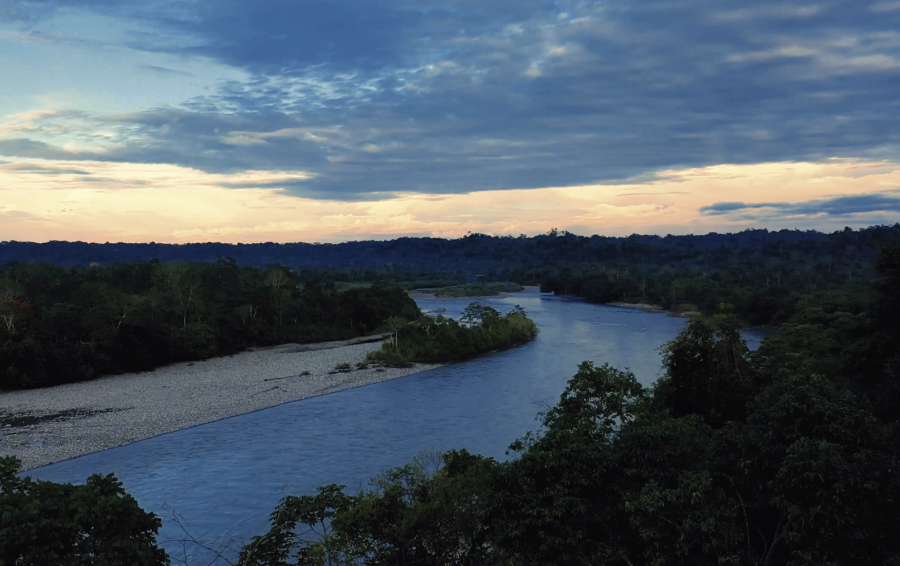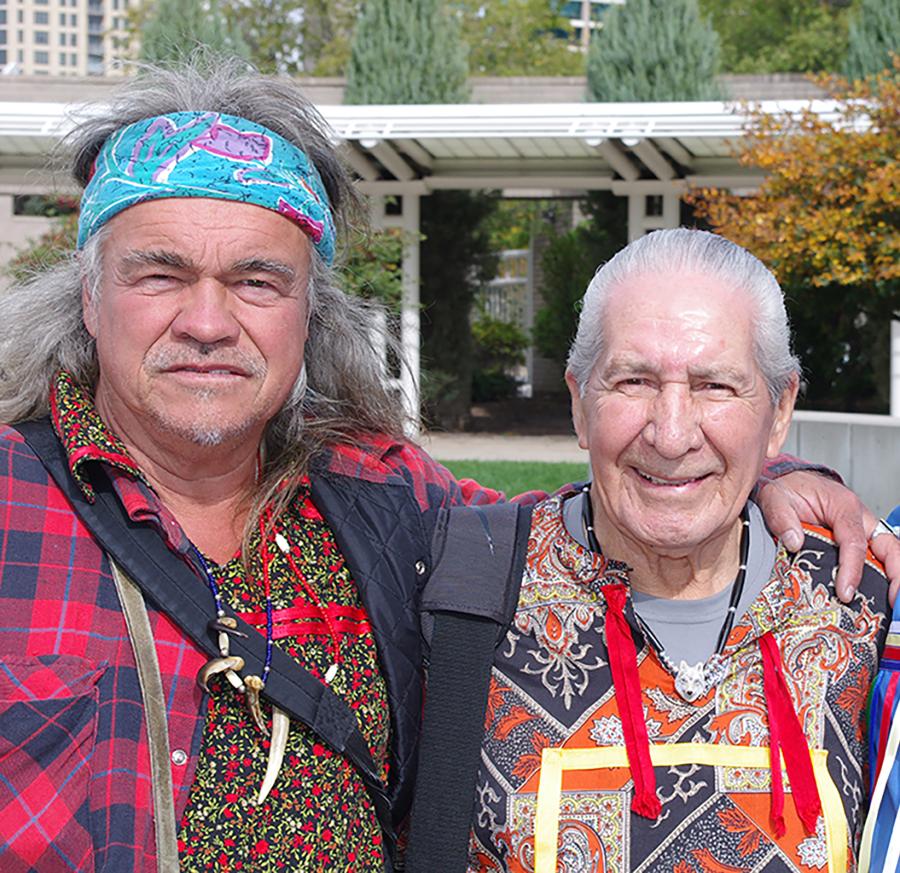
By Erika Mayer
The fourteenth session of the United Nations Permanent Forum on Indigenous Issues (UNPFII) was held from April 20 to May 1, 2015. At this crucial meeting, the Permanent Forum brought together delegates, State representatives, and experts to discuss a wide range of issues affecting Indigenous Peoples, and how States, communities, and United Nations agencies can work together to improve the lives of Indigenous Peoples and to advocate for their rights. The recently released report from the fourteenth session calls particular attention to the problem of suicide among Indigenous youth, to Indigenous Peoples living in the Pacific region, and to the negative effects that climate change could have on Indigenous Peoples around the world.
One unique event that affected and informed the Permanent Forum’s discussions was the World Conference on Indigenous Peoples, held in September of 2014. The first conference of its kind, this unique General Assembly meeting discussed a variety of topics concerning the rights of Indigenous Peoples, including “the action points on data disaggregation, land rights, traditional knowledge, the implementation of free, prior and informed consent and access to justice.” The Permanent Forum Report affirms the value of the World Conference’s recommendations. In particular, it highlights the World Conference’s focus on how ceremonial objects and human remains are repatriated, or returned to their place and people of origin, and suggests the creation of a manual of good practice for this repatriation. Such a manual would be drafted with input from States and Indigenous Peoples and with support from the United Nations.
A topic that was central to the Permanent Forum’s discussion this year was the issue of elevated rates of suicide and self-harm among Indigenous children and youth. The Report first explains the reasons for such alarming rates of suicide and self-harm, stating that, “Indigenous peoples worldwide continue to suffer from the intergenerational trauma of colonization, assimilation, loss of language, culture and traditional knowledge and the disintegration of families.” Many Indigenous people face overwhelming social and economic problems in their communities, and they struggle to hang on to their cultures, lands, traditions, and basic human rights in a world that frequently exploits them. For some Indigenous youth, these multifarious sources of trauma compound and create a sense of hopelessness. Recognizing that the source of trauma for Indigenous children and young adults often lies directly in their socioeconomic situation is a necessary first step for States seeking to address the problems of suicide and self-harm.
The Report notes that States provided valuable information about how to combat the problem, but raises concerns that there is not enough cooperation between States on a global level. To help bridge the gap between different States and regions, the Report recommends that the World Health Organization gather research and prepare a program to help reduce rates of suicide and self-harm among Indigenous youth. Additionally, it calls on the United Nations Children’s Fund to develop its own policy on Indigenous youth and for the Envoy of the Secretary-General on Youth to address the problem directly.
Greater global action is needed, but there is much to be done at the national level as well. The Report “urges all States to substantially increase the human and financial resources made available to all indigenous communities and schools to prevent self-harm and suicide among young people, and for holistic treatment based on cultural, spiritual and linguistic revitalization, providing healthy and positive lifestyle choices and access to traditional methods of counselling based on accurate and reliable data.” Because suicide and self-harm among Indigenous youth is so linked with the destruction of culture, treatment for these problems must begin with a respect for culture.
The Permanent Forum also called special attention to the Pacific islands, a region home to a staggeringly diverse array of languages and cultures. Indigenous Peoples compose a majority of the population on many of these islands, but their lifestyles are deeply threatened by colonialism, climate change, and human rights violations. Challenges include “their right to self-determination, the destruction of their lands, territories and resources, especially by extractive industries, displacements, violations of their free, prior and informed consent and the criminalization of indigenous peoples.” The Report recommends that the United Nations High Commissioner for Refugees and the International Organization for Migration address these problems, and asks States and the Special Rapporteur on the rights of Indigenous Peoples to focus on the problem of forced relocation of Indigenous communities. Valmaine Toki, a lecturer in law with extensive experience in Māori law, has been appointed to conduct a study on Indigenous Peoples in the Pacific region and how those Indigenous Peoples are affected by their governance, climate change, deep sea mining, and development.
The importance of agriculture is also addressed in the Report. States are called on to support the production of foods that are traditional to Indigenous Peoples, particularly drought-resistant foods. The Report proposes a committee composed of United Nations agencies as well as Burkina Faso, Mali, and the Niger with the goal of preventing famines in sub-Saharan Africa. Two United Nations agencies that have been integral to rural development and to the inclusion of Indigenous Peoples in discussions regarding agriculture are the International Fund for Agricultural Development (IFAD) and the Food and Agriculture Organization of the United Nations (FAO). There is room for improvement, however, and the Report suggests that IFAD and FAO should continue to strengthen engagement with Indigenous Peoples and to provide them with training and other programs.
These detailed recommendations regarding suicide prevention, the Pacific region, and agriculture could not have been made without the input of Indigenous people—the inclusion of Indigenous people in discussions is paramount to the success of those discussions. The Report therefore emphasizes the need for greater inclusion of Indigenous voices at the UN General Assembly, the United Nations summit for the adoption of the post-2015 agenda, an upcoming high-level event on climate change, the Conference of the Parties to the United Nations Framework Convention on Climate Change, and the third International Conference on Financing for Development. The Permanent Forum Report also recommends that the Under-Secretary-General for Economic and Social Affairs draft a plan for greater inclusion of Indigenous representatives. Too often, even when some Indigenous voices are heard, the voices of Indigenous women are silenced, and the Report repeatedly emphasizes the need to address the rights of Indigenous women and to fully include them in all discussions.
In addition to the full inclusion of Indigenous Peoples, tackling problems faced by Indigenous communities requires extensive cooperation between United Nations agencies. When the agencies are coordinated, rather than working in isolation, recommendations on paper can be transformed into action and change in the real world much more rapidly. As such, the Inter-Agency Support Group on Indigenous Issues, which coordinates agencies working for Indigenous rights, is extremely important.
Although the United Nations continues to push for progress on the problems that affect Indigenous Peoples, States, too, bear a great deal of the responsibility. The Permanent Forum provided a paragraph for States to use as they reaffirm their commitments to Indigenous Peoples, a paragraph that summarizes many of the problems Indigenous peoples face:
“We affirm that Indigenous Peoples have the right to determine and develop priorities and strategies for exercising their right to development, based on their security, of their lands, territories and resources. We commit ourselves to ensuring equal access to high-quality education that recognizes the diversity of the cultures of indigenous peoples, and to health, housing, water, sanitation and other economic and social programmes to improve their well-being, including through initiatives, policies and the provision of resources. We intend to empower indigenous peoples, including women, to deliver such programmes and commit ourselves to working with indigenous peoples to disaggregate data on indigenous peoples’ development and well-being.”
The United Nations provides many guidelines for States regarding the rights of Indigenous Peoples, but those guidelines are often ignored or not followed in the way that they were originally intended. Sometimes States are able to do this because the rules of international organizations are written weakly and ineffectively. Therefore, the Permanent Forum called for a study conducted by Edward John and Dalee Sambo Dorough to investigate how such weak rules enable States to avoid following international laws.
Of course, the Permanent Forum Report also looks to future events, paving the way for additional meetings and conferences that will continue the dialogue about Indigenous rights. One such event is a meeting about the preservation of Indigenous languages authorized by the Economic and Social Council. This meeting would bring together experts to discuss the topic “Indigenous languages: preservation and revitalization (articles 13, 14, and 16 of the United Nations Declaration on the Rights of Indigenous Peoples).” The Council also determined that the next Permanent Forum on Indigenous Issues will be held from May 9 to May 20 in 2016; its theme will be “Indigenous peoples: conflict, peace and resolution.”
To even better assess the situation of Indigenous Peoples, the Permanent Forum has proposed an Indigenous Peoples development index that would provide indicators of how well—or poorly—the human rights of Indigenous Peoples are being upheld. In one of its recommendations, the Permanent Forum Report even calls for reform of the Permanent Forum itself. This reform would place more emphasis on ensuring that past recommendations are followed, rather than merely issuing more and more recommendations. Such changes would allow the Permanent Forum to better ensure that their well-researched recommendations will be fully carried out and will effect positive change for Indigenous communities around the world.



